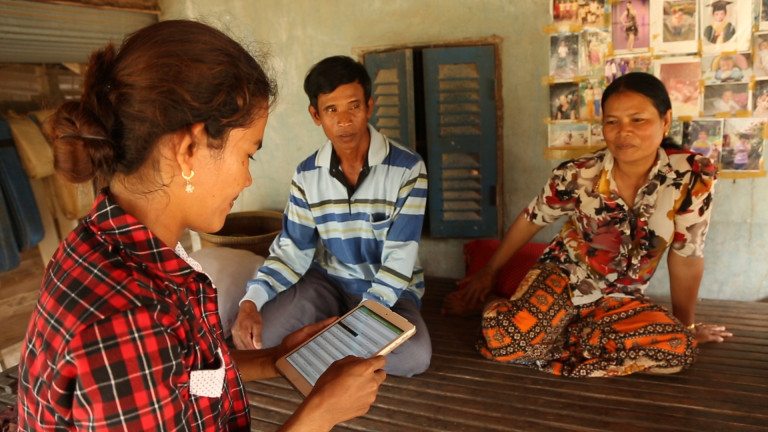Written by Jason Berry, Program Director for Asia at Neverthirst
Water, an essential of life. Yet, there are over 630 million people living without access to clean water. Because of this, over 2,300 children die each day from preventable diseases, a direct result of dirty water or poor sanitation.
Neverthirst, an international Christian non-profit organization, is dedicated to bringing clean water to underserved communities. By working with in-country partners, we are able to implement long-term and high quality projects throughout India, Nepal, Cambodia, South Sudan, and Sudan.
In general, people in Cambodia can find water near their home. The water quality, however, makes it inadequate to meet the needs of families, especially children. Leaving no other option, this often results in poor health and increased expenses.

Our solution is the household bio-sand filter. Made of locally available materials, this filter allows dirty water to pour into the top and come out with the taste and appearance drastically improved. Once dirty water is poured into the top of the filter, it flows through the bio-layer, sand, and rock; they work together to remove protozoa, bacteria, and worms. Each family that receives a filter is trained on safe water storage and contributes $5 to their filter as a means of ownership.
By the end of 2015, 500 bio-sand filters were implemented throughout two provinces in Cambodia. At one, three, six, and 12 months after installation, we visit the home to ensure that people are getting the maximum benefit from the filter. Prior to using iFormBuilder, the data was manually collected using paper and pencil and the data was then manually entered into a spreadsheet to track visit dates. Although this information was collected, the time taken was considerable and there was no automated calculation of the data to determine usage rates and program effectiveness.
Improving our workflow and procedures has allowed us to capture incredibly valuable data. Once each filter is built at a central location and transported to the family’s home, the first form is completed. This information is used to verify and validate funding. From that initial report, the next four dates are automatically generated, removing the possibility of human error.
Data is stored on Google Drive and our local partner receives a monthly email confirming filter locations and quantity of visits to complete. When the partner visits the homes, another form is completed and updated to Drive. Anyone looking at the real-time report is able to see when a visit has been completed because the report changes from red to green. Additionally, our dashboard allows our teams to track overall data and results.
Having these real-time integrations have revolutionized our projects. At any time, we know the status of visits, data, and results. This process has also streamlined the way we work across the world. Our local partners are saving a tremendous amount of time by not manually tracking each filter and we are able to work more efficiently cross-continentally.
About the Author
Jason Berry is Neverthirst’s Program Director for Asia. Jason is responsible for maintaining Neverthirst’s relationships with the local implementing partners in Cambodia, India, and Nepal. Jason develops the reporting tools on iForm that the local partners use to report completed water projects. In May 2015, Jason, Mark, and Brandon attended the iForm Conference in DC. This conference enlarged their vision of how the iForm platform could enhance the quality of reporting and data management.



